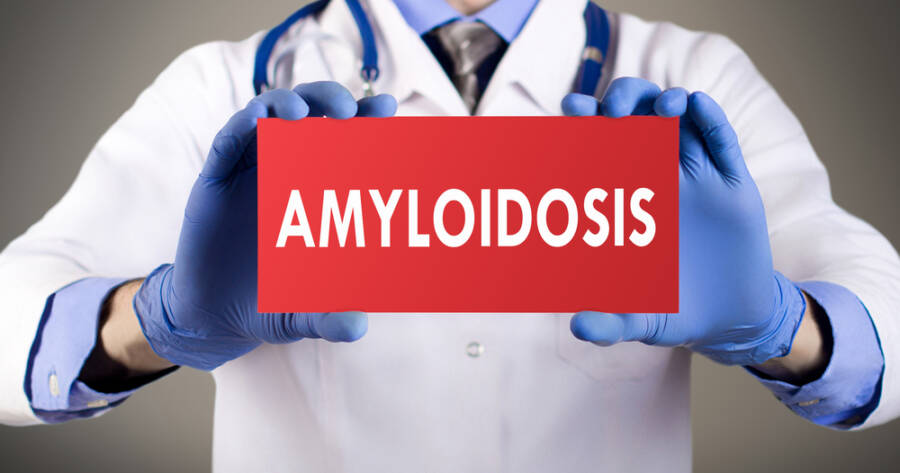Amyloidosis is a rare condition that seniors should know about, as early detection can make a big difference. It happens when abnormal proteins called amyloids build up in organs, leading to serious health problems. Understanding the symptoms and treatments, like Tegsedi, can help seniors recognize and manage this condition better. Here’s what you need to know about amyloidosis and how to address it.
Understanding Amyloidosis and Its Impact
Amyloidosis is a disorder caused by deposits of amyloid proteins, which are abnormal and don’t dissolve naturally in the body. Over time, these proteins accumulate in organs and tissues, causing organs to stop working properly. Different types of amyloidosis affect various organs, but the most common areas are the heart, kidneys, liver, and nerves.
Though rare, amyloidosis can severely impact health if left unchecked, particularly in seniors. Recognizing it early gives individuals a better chance of slowing the progression and managing symptoms.
Early Symptoms of Amyloidosis: Know What to Look For
Amyloidosis symptoms can vary widely depending on which organs are affected. However, there are some early warning signs that seniors should not ignore:
Unexplained weight loss: Sudden and unexplained weight loss may be an early sign, especially if there hasn’t been any change in diet or activity level. This symptom occurs because amyloid deposits interfere with normal organ functions.
Shortness of breath and fatigue: Heart-related amyloidosis may cause symptoms like fatigue and shortness of breath, as the heart struggles to pump blood effectively. Seniors may feel constantly tired, even with adequate rest.
Swelling in legs or ankles: If the kidneys are impacted by amyloidosis, fluid retention may occur, causing noticeable swelling in the lower legs and ankles.
Numbness or tingling in hands and feet: Amyloid deposits in nerves can cause a sensation of numbness or tingling, primarily in the hands and feet. Seniors should note these feelings, especially if they become more frequent or persistent.
How Tegsedi Can Help Manage Amyloidosis
Tegsedi (inotersen) is a medication that helps manage a specific type of amyloidosis called hereditary transthyretin amyloidosis (hATTR). This form of amyloidosis is genetic, passed down through families, and affects the nervous system and heart. Tegsedi works by reducing the production of transthyretin (TTR), the protein responsible for hATTR amyloidosis, thereby slowing the buildup of amyloid deposits.
Administered as a self-injection, Tegsedi allows patients to manage their treatment at home under a doctor’s guidance. This medication has shown promise in helping people with hATTR amyloidosis maintain their quality of life. However, it’s essential for seniors to have regular check-ups when using Tegsedi, as it may have side effects, including low blood platelets and kidney issues. Always consult a doctor before starting this treatment.
Other Approaches to Treating Amyloidosis
Treatment for amyloidosis varies based on the type and severity of the condition. For example:
Chemotherapy: Certain types of amyloidosis, like AL amyloidosis, are treated using chemotherapy, as it targets cells that produce amyloid proteins.
Organ transplantation: In advanced cases where specific organs are severely affected, organ transplantation may be an option to replace damaged tissues.
Stem cell transplant: In some patients, a stem cell transplant can help regenerate healthy cells and reduce amyloid buildup.
While Tegsedi is specific to hATTR amyloidosis, these other treatments are essential options depending on each person’s unique situation. Seniors should work closely with their healthcare providers to determine the most suitable treatment path.
Importance of Early Diagnosis and Regular Monitoring
Early diagnosis is crucial for managing amyloidosis effectively. Seniors experiencing symptoms should see a doctor, especially if they notice multiple warning signs. Diagnosing amyloidosis usually involves a combination of blood tests, urine tests, imaging, and biopsy. A doctor may also perform genetic testing if hereditary forms of the disease are suspected, like hATTR.
Once diagnosed, regular monitoring helps track the progression and adapt treatment as necessary. Seniors should stay vigilant for any changes in their symptoms, even if they’re already receiving treatment. Open communication with healthcare providers enables early intervention when needed, which is crucial for preserving quality of life.
Managing Amyloidosis with a Support Network
Living with amyloidosis can be challenging, particularly for seniors. Building a support network can significantly improve the day-to-day experience. Family members, friends, and healthcare professionals all play a role in providing the necessary support, from helping with medical appointments to offering emotional encouragement.
Support groups for amyloidosis can also be beneficial, allowing individuals to connect with others who understand the unique challenges of living with this condition. Many groups offer resources, information, and emotional support that make coping with amyloidosis a little easier.
Taking Charge of Amyloidosis with Knowledge and Support
Amyloidosis may be rare, but it’s essential for seniors to recognize its early signs and act quickly. Treatments like Tegsedi offer promising options, especially for those with hATTR amyloidosis.
By staying informed, consulting with healthcare professionals, and leaning on supportive networks, seniors can face this condition with greater confidence and resilience. Early detection and a proactive approach can make all the difference in managing amyloidosis effectively.
